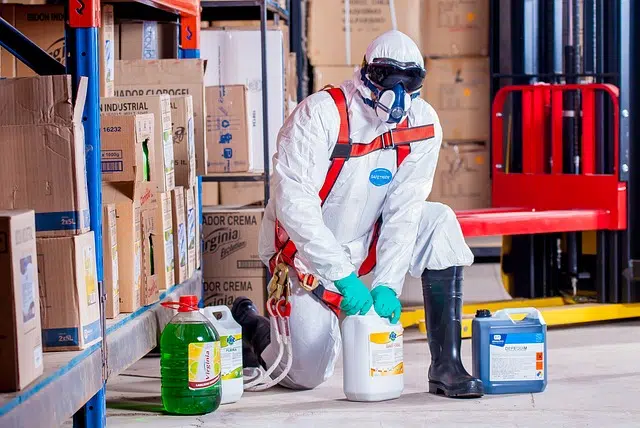
Occupational health cares for and promotes the well-being of workers.
The World Health Organization (WHO) defines occupational health as a multidisciplinary activity that promotes and protects the health of workers . This discipline seeks to control accidents and diseases by reducing risk conditions.
Occupational health is not limited to taking care of the worker's physical conditions , but also deals with psychological issues . For employers, occupational health means support for the improvement of the worker and the maintenance of their work capacity.
Problems that occupational health addresses
The most common problems that occupational health must deal with are fractures, cuts and strains due to work accidents, repetitive motion disorders, problems with vision or hearing, and diseases caused by exposure to unhygienic or radioactive substances. For example.
It can also take care of stress caused by work or work relationships.
The role of the State
It should be noted that occupational health is an important issue for governments , which must guarantee the well-being of workers and compliance with standards in the workplace. For this purpose, it usually carries out periodic inspections that aim to determine the conditions in which the different types of work are carried out.
It is important to keep in mind that job insecurity affects occupational health. A company that has its workers in the black (that is, they do not have medical coverage) and that has an inadequate physical space for work puts people's health at risk.

Protective measures to reduce the risk of accidents are part of occupational health.
Occupational health programs
To ensure a good, safe and stable work environment, occupational health programs are developed, made up of a series of plans that revolve around the health of employees.
Depending on the type of need they address, these plans can be: hygiene plans (related to asepsis and safety around hygiene issues), safety plans (they ensure the lives of employees in aspects related to risks or accidents). ) and preventive medicine plans (actions that the company will take in order to keep its staff informed of everything that is necessary in order to prevent any type of illness). All of them have as a priority objective to maintain and improve the health of employees within the work environment .
The fundamental thing in occupational health is to ensure a high degree of mental, social and physical well-being for workers and prevent all kinds of accidents and unforeseen events; ensuring a workplace without elements harmful to health and providing employment security , as long as the worker meets the requirements entrusted to him.
The importance of a medical examination
When entering a new job, individuals undergo a medical examination , through which their physical and mental conditions are established at the time of assuming the contract with said company. After a while, the examination will be repeated and, if there turns out to be any anomaly in the individual's health that could be related to work, occupational health is responsible for helping them.
Some of the complications that occupational health is responsible for treating and preventing are:
* sprains or breaks that can arise from performing repetitive movements;
* ear problems due to excessive noise;
* vision problems caused by a substance or improper fixation of this sense;
* Diseases in internal organs due to inhaling or being in contact with substances harmful to the body;
* diseases caused by prolonged exposure to radiation;
* other types of diseases or complications due to exposure to various substances or elements.
